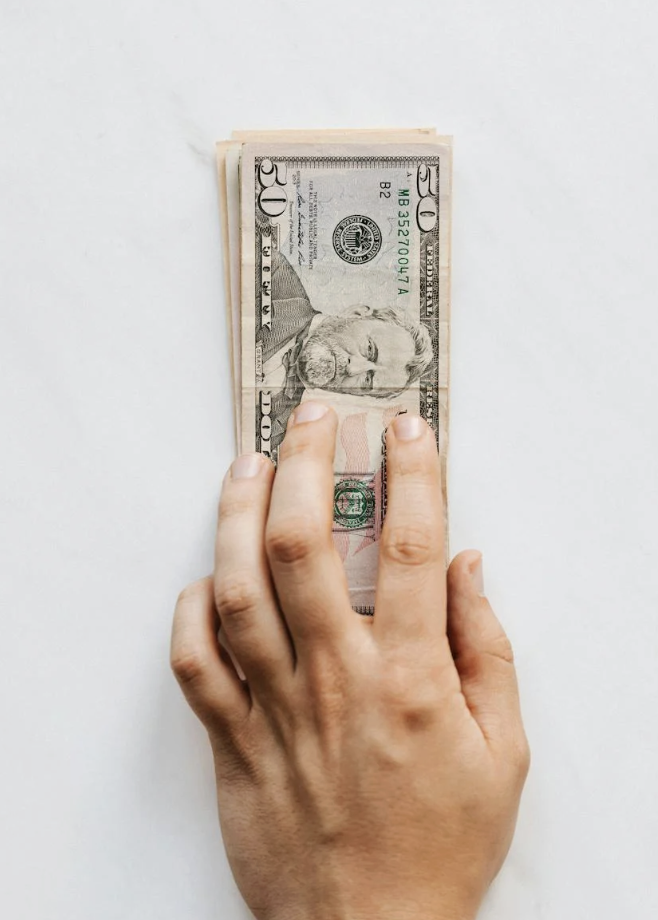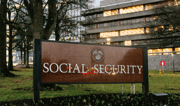
Sometimes the best news comes when you least expect it. If you received an unwanted text message from Cash App promoting their referral program, you could be eligible for a payment between $88 and $147, thanks to a new class action settlement.
Cash App has agreed to a $12.5 million class action settlement to resolve claims that it violated consumer protection laws by sending unsolicited promotional text messages to its customers.
This isn't just about a few annoying text messages—it's about your right to control who contacts you and how.
The case also highlights growing efforts to hold companies accountable for unwanted digital marketing and protect consumers from invasive communication practices.
What exactly happened here?
The lawsuit, filed by Kimberly Bottoms in November 2023, alleged that Cash App's referral system was sending promotional text messages to Washington residents who hadn't explicitly agreed to receive them.
These messages typically looked something like: "Hey! I've been using Cash App to send money and spend using the Cash Card. Try it using my code and you'll get $5."
Washington has a law barring companies and individuals from sending spam emails to state residents without their consent.
The statute was updated in 2003 to encompass text messages and includes provisions for third parties who help transmit unwanted messages.
While Cash App's parent company, Block Inc., maintains they didn't directly send these messages, the court found that their "Invite Friends" feature facilitated the transmission of unwanted promotional content to Washington residents.
"Block did not initiate or assist in the transmission of a text message to Plaintiff and/or others alleged to be members of the putative class"
Are you eligible for payment?
The qualification requirements are quite specific, so pay close attention:
You must have:
- Received a Cash App referral program text message between Nov. 14, 2019, and Aug. 7, 2025, and been a Washington resident at the time you received the text message
- Not clearly and affirmatively consented in advance to receive the Cash App referral program text message
If an individual received a notice about this settlement by email or mail, it means records indicate they may have received a qualifying referral text message.
However, individuals who did not receive a notice may still be eligible if they meet the requirements above.
Also read:Grocery shoppers may be eligible for cash from a new settlement
How much money are we talking about?
Each class member is estimated to receive between $88 and $147.
Actual payments may be higher or lower depending on the number of claims filed.
The settlement fund will be divided equally among all approved claimants, so filing early won’t get you more money—but it will ensure your claim is processed smoothly.
Important dates to remember
Claim deadline: October 27, 2025
Final court approval: December 2, 2025
Payments issued: After final approval (likely early 2026)
This isn't Cash App's first rodeo
This settlement comes on the heels of other legal troubles for the company.
In April, Block agreed to pay a $40 million fine to resolve allegations by the New York State Department of Financial Services that Cash App employed lax oversight of its financial services.
The pattern suggests that as digital payment platforms have grown rapidly, some haven't kept pace with consumer protection requirements.
How to file your claim (and avoid scams)
To receive a settlement payment, class members must submit a valid claim form by October 27, 2025.
You can file online through the official settlement website or download a PDF form to complete and mail.
Warning signs of settlement scams:
- Requests for upfront fees or personal financial information
- Pressure to "act now" or claims that only limited spots are available
- Emails or calls asking for Social Security numbers or bank account details
- Links that don't lead to official court-authorized websites
Always verify settlement information through official legal websites or court records. Legitimate settlements never require payment to participate.
Did you know?
Did you know?
Washington was one of the first states to update its anti-spam laws to cover text messages back in 2003, nearly two decades before most people were even thinking about unwanted marketing texts on their phones.
Also read: You could be owed $970 from a $12M gas station settlement—check if you qualify
The bigger picture: Your digital privacy rights
This case represents something much more significant than individual payouts.
It's part of a growing movement to hold tech companies accountable for respecting user privacy and consent in the digital age.
This isn't just about a few text messages or $147—it's about the bigger picture: your digital privacy and your right to control who contacts you and how.
As tech companies grow, their systems often automate processes that reach millions—sometimes without permission.
This case is a powerful reminder that consent still matters, even in the digital age.
For older adults who may be less familiar with the nuances of digital consent and privacy settings, these kinds of settlements serve as important reminders that you have rights—and legal remedies when those rights are violated.
Timeline: When to expect your payment
The wheels of justice move slowly, but they do move. Here's what happens next:
- Now through October 27, 2025: File your claim
- December 2, 2025: Final approval hearing for the Cash App settlement is scheduled
- Early 2026: If approved, payments will be distributed
The settlement administrator will distribute payments equally among all class members who submit valid claims.
If there are uncashed or undeliverable payments, the settlement administrator may redistribute them to claimants who cashed their initial payments or donate them to the Legal Foundation of Washington.
Also read: Capital One customers could be in line for settlement payments—here’s what to know[/p]
What this means for your wallet and your rights
Beyond the potential payment, this settlement offers broader lessons about protecting yourself in the digital world:
For your immediate finances: If you qualify, this represents genuine "found money" that requires only a few minutes to claim. Even $88 can cover a nice dinner out or contribute to holiday shopping.
For your long-term privacy: Use this as motivation to review the privacy settings on all your mobile apps. Many apps request permission to access your contacts or send messages on your behalf - permissions you can revoke at any time.
For consumer empowerment: This case proves that even individual consumers can hold major corporations accountable through the class action system.
Key steps to protect yourself from unwanted digital communications
- Review and adjust privacy settings on all your mobile apps regularly
- Never give blanket permission for apps to access your contacts without understanding why
- Report unwanted promotional messages to your carrier
- Keep records of unwanted messages in case you need them for future legal action
- Watch for official settlement notices in your mail and email—they could be worth money
This Cash App settlement is a reminder that your privacy has real value—both legally and financially.
Companies that profit from your data and attention should respect the boundaries you set, and when they don't, the legal system can provide both compensation and course correction.
Whether you end up with $88 or $147, you'll be part of a larger victory for digital privacy rights. And in a world where our phones buzz with constant notifications, that's worth celebrating.
Read next:
- You may be eligible for up to $100 from this settlement—no receipts or texts required
- Are you owed up to $5,200? Claim these 3 settlements before time runs out
- Don’t miss out: Score a $300 Chase bonus with just $5.55 a day if you act by October 15
Have you received unwanted promotional texts from other apps or services lately? Share your experiences in the comments below—your story might help other readers recognize when their privacy rights have been violated.
Original Article
https://www.the-sun.com/money/15297027/cash-app-settlement-claim-form-october-checks/
$12.5M Cash App text message class action lawsuit settlement
Cited text: ... Cash App has agreed to a $12.5 million class action settlement to resolve claims that it violated Washington law by sending unsolicited commercial...
Excerpt: Cash App has agreed to a $12.5 million class action settlement to resolve claims that it violated Washington law by sending unsolicited commercial text messages to its customers.
https://topclassactions.com/lawsuit...text-message-class-action-lawsuit-settlement/
Block agrees to $12.5M settlement in Cash App spam text case | Payments Dive
Cited text: Washington has a law barring companies and individuals from sending spam emails to state residents without their consent. The statute was updated in 2...
Excerpt: Washington has a law barring companies and individuals from sending spam emails to state residents without their consent.
https://www.paymentsdive.com/news/block-agrees-to-125m-settlement-in-cash-app-spam-text-case/753829/
Claim your share of the $12.5M Cash App Washington TCPA settlement
Cited text: They received a Cash App referral program text message between Nov. 14, 2019, and Aug. 7, 2025. They were a Washington resident at the time they recei...
Excerpt: Received a Cash App referral program text message between Nov. 14, 2019, and Aug.
https://www.claimdepot.com/settlements/bottoms-text-settlement
Claim your share of the $12.5M Cash App Washington TCPA settlement
Cited text: They did not clearly and affirmatively consent in advance to receive the Cash App referral program text message.
Excerpt: Not clearly and affirmatively consented in advance to receive the Cash App referral program text message
https://www.claimdepot.com/settlements/bottoms-text-settlement
Claim your share of the $12.5M Cash App Washington TCPA settlement
Cited text: If an individual received a notice about this settlement by email or mail, records indicate they may have received a qualifying referral text message....
Excerpt: If an individual received a notice about this settlement by email or mail, records indicate they may have received a qualifying referral text message.
https://www.claimdepot.com/settlements/bottoms-text-settlement
$12.5M Cash App text message class action lawsuit settlement
Cited text: According to the class action settlement website, each class member is estimated to receive between $88 and $147.
Excerpt: Each class member is estimated to receive between $88 and $147.
https://topclassactions.com/lawsuit...text-message-class-action-lawsuit-settlement/
$12.5M Cash App text message class action lawsuit settlement
Cited text: Actual payments may be higher or lower depending on the number of claims filed.
Excerpt: Actual payments may be higher or lower depending on the number of claims filed.
https://topclassactions.com/lawsuit...text-message-class-action-lawsuit-settlement/
Block agrees to $12.5M settlement in Cash App spam text case | Payments Dive
Cited text: And in April, Block agreed to pay a $40 million fine to resolve allegations by the New York State Department of Financial Services that Cash App emplo...
Excerpt: In April, Block agreed to pay a $40 million fine to resolve allegations by the New York State Department of Financial Services that Cash App employed lax oversight of its financial services.
https://www.paymentsdive.com/news/block-agrees-to-125m-settlement-in-cash-app-spam-text-case/753829/
$12.5M Cash App text message class action lawsuit settlement
Cited text: To receive a settlement payment, class members must submit a valid claim form by Oct. 27, 2025.
Excerpt: To receive a settlement payment, class members must submit a valid claim form by Oct.
https://topclassactions.com/lawsuit...text-message-class-action-lawsuit-settlement/
Cash App $12.5M Settlement: Who Qualifies for the $147 Spam Text Payout? - Stoyan Dimitrov
Cited text: It’s about the bigger picture: your digital privacy and your right to control who contacts you and how. As tech companies grow, their systems often au...
Excerpt: This isn't just about a few text messages or $147. It's about the bigger picture: your digital privacy and your right to control who contacts you and how.
https://stoyandimitrov.net/cash-app-147-payment-12-5m-settlement-spam-text/
$12.5M Cash App text message class action lawsuit settlement
Cited text: The final approval hearing for the Cash App settlement is scheduled for Dec. 2, 2025.
Excerpt: Final approval hearing for the Cash App settlement is scheduled
https://topclassactions.com/lawsuit...text-message-class-action-lawsuit-settlement/
Claim your share of the $12.5M Cash App Washington TCPA settlement
Cited text: The settlement administrator will distribute payments equally among all class members who submit valid claims. If there are uncashed or undeliverable ...
Excerpt: The settlement administrator will distribute payments equally among all class members who submit valid claims.
https://www.claimdepot.com/settlements/bottoms-text-settlement






